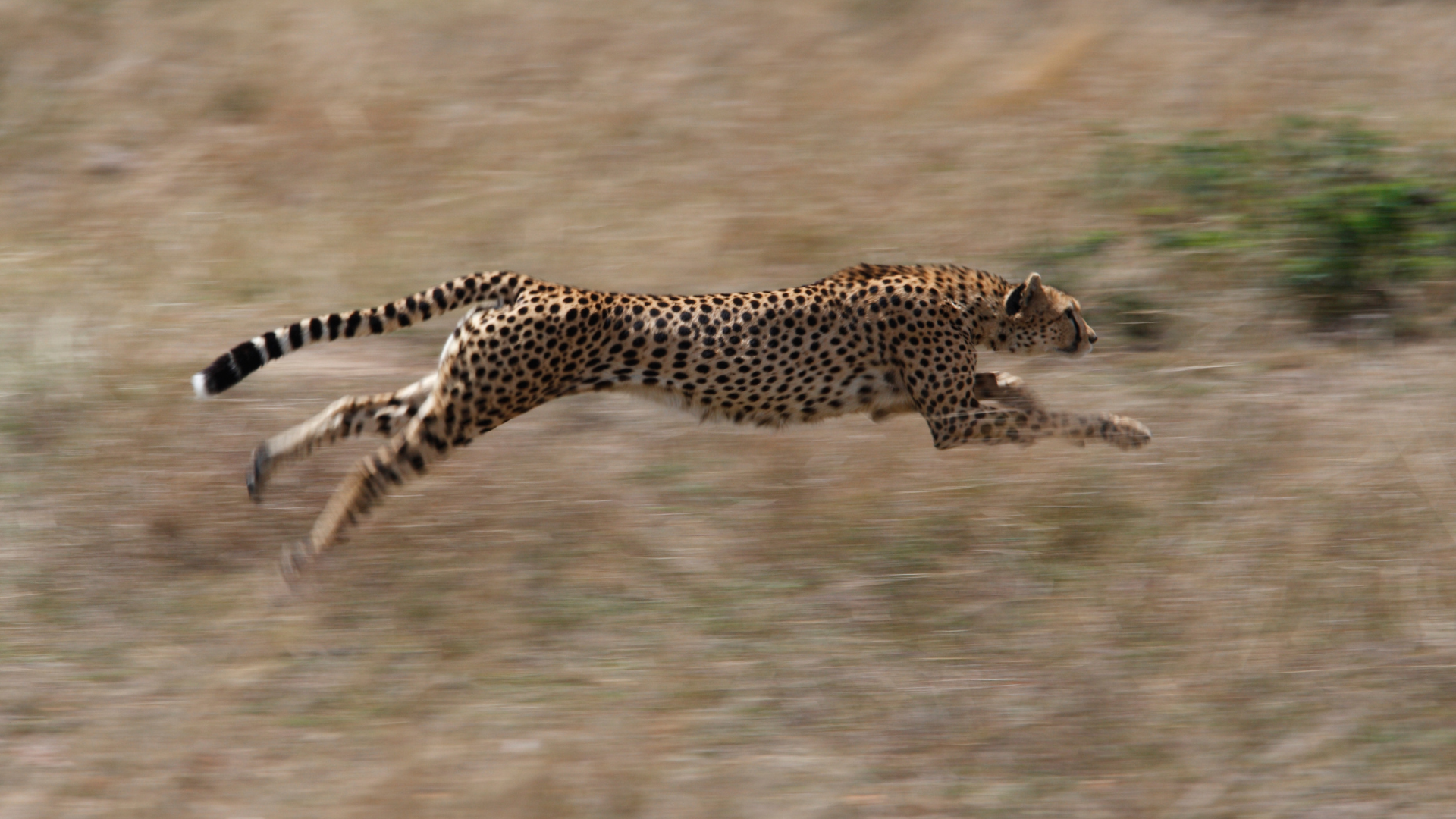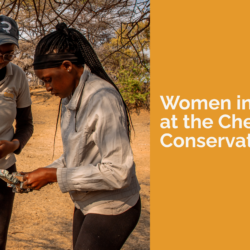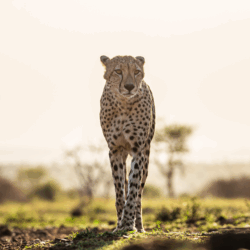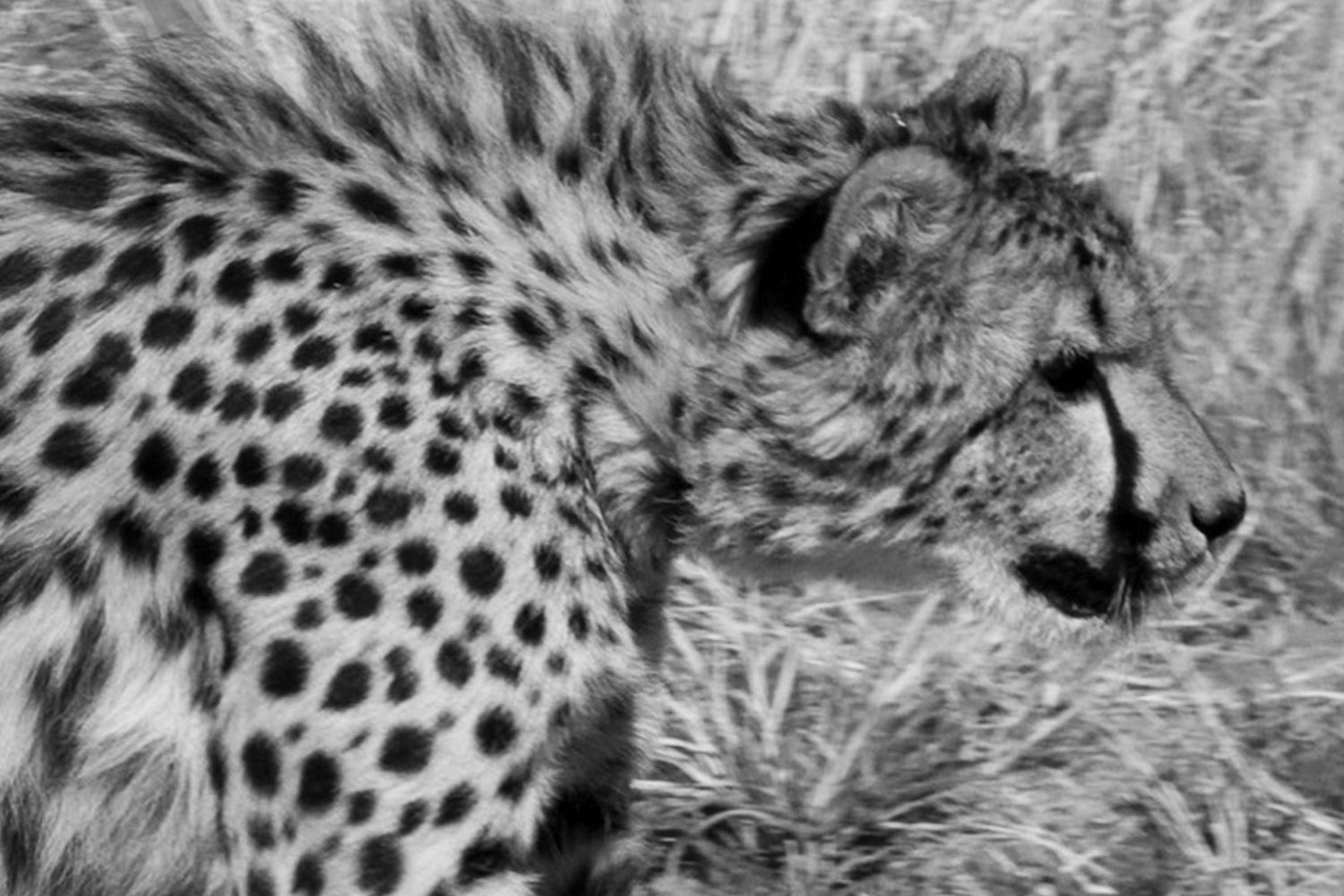From savannah to stadium: Cheetah biomechanics inspire Olympic athletes
-

- by Zila Oliveira 3 August 2024

Recent research by Professor Alan Wilson’s team at the Royal Veterinary College has unveiled new insights into cheetah locomotion. Contrary to previous beliefs, the study reveals that the cheetah’s unparalleled speed stems not from stride length, but from its ability to rapidly increase stride frequency during acceleration. These findings could revolutionise sprint training for Olympic athletes.
The research team utilised GPS tracking and motion sensors to analyse cheetah movements in the wild. By examining their biomechanics, scientists identified key factors contributing to cheetahs’ exceptional speed:
- Stride frequency: Cheetahs can achieve up to 120 strides per minute during a sprint, a feat that surpasses human capabilities but offers improvement inspiration.
- Elastic energy storage: The cheetah’s long, springy spine and tendons act as a coiled spring, storing and releasing energy efficiently with each stride.
- Core strength: A robust core allows cheetahs to maintain stability and balance at high speeds, enabling rapid directional changes.

These findings have significant implications for Olympic sprinters and their training regimens. By focusing on increasing stride frequency during acceleration phases, athletes may be able to achieve faster starts and higher top speeds.
Professor Wilson suggests that while humans cannot replicate the cheetah’s physiology exactly, there are valuable lessons to be learned. “Understanding how cheetahs achieve their extraordinary speeds can inspire new approaches to human sprint training,” he explains.
As everyone is focusing now on the Olympics, these insights from cheetah biomechanics could play a crucial role in shaping the future of sprint training. Coaches and athletes alike are likely to incorporate these findings into their preparations, potentially leading to new records and unprecedented human speed achievements.
While we admire the cheetah’s remarkable speed, we must also recognize their crucial ecological role and the need for conservation. The Cheetah Conservation Fund UK works to protect these magnificent creatures, preserving their legacy for future generations.
This article is based on research reported by Zaria Gorvett for BBC Future. For the full, original report, please visit the BBC website.
Related Reading
-
10 February 2026
Women Shaping the Future of Science at the Cheetah Conservation Fund



